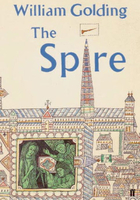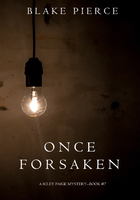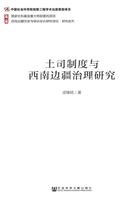From the crowd assembled in front of the house of the village elder came the sound of voices; but as soon as Nekhludoff came up the talking ceased, and all the peasants took off their caps, just as those in Kousminski had done. The peasants here were of a much poorer class than those in Kousminski. The men wore shoes made of bark and homespun shirts and coats. Some had come straight from their work in their shirts and with bare feet.
Nekhludoff made an effort, and began his speech by telling the peasants of his intention to give up his land to them altogether. The peasants were silent, and the expression on their faces did not undergo any change.
"Because I hold," said Nekhludoff, "and believe that every one has a right to the use of the land."
"That's certain. That's so, exactly," said several voices.
Nekhludoff went on to say that the revenue from the land ought to be divided among all, and that he would therefore suggest that they should rent the land at a price fixed by themselves, the rent to form a communal fund for their own use. Words of approval and agreement were still to be heard, but the serious faces of the peasants grew still more serious, and the eyes that had been fixed on the gentleman dropped, as if they were unwilling to put him to shame by letting him see that every one had understood his trick, and that no one would be deceived by him.
Nekhludoff spoke clearly, and the peasants were intelligent, but they did not and could not understand him, for the same reason that the foreman had so long been unable to understand him.
They were fully convinced that it is natural for every man to consider his own interest. The experience of many generations had proved to them that the landlords always considered their own interest to the detriment of the peasants. Therefore, if a landlord called them to a meeting and made them some kind of a new offer, it could evidently only be in order to swindle them more cunningly than before.
"Well, then, what are you willing to rent the land at?" asked Nekhludoff.
"How can we fix a price? We cannot do it. The land is yours, and the power is in your hands," answered some voices from among the crowd.
"Oh, not at all. You will yourselves have the use of the money for communal purposes."
"We cannot do it; the commune is one thing, and this is another."
"Don't you understand?" said the foreman, with a smile (he had followed Nekhludoff to the meeting), "the Prince is letting the land to you for money, and is giving you the money back to form a capital for the commune."
"We understand very well," said a cross, toothless old man, without raising his eyes. "Something like a bank; we should have to pay at a fixed time. We do not wish it; it is hard enough as it is, and that would ruin us completely."
"That's no go. We prefer to go on the old way," began several dissatisfied, and even rude, voices.
The refusals grew very vehement when Nekhludoff mentioned that he would draw up an agreement which would have to be signed by him and by them.
"Why sign? We shall go on working as we have done hitherto. What is all this for? We are ignorant men."
"We can't agree, because this sort of thing is not what we have been used to. As it was, so let it continue to be. Only the seeds we should like to withdraw."
This meant that under the present arrangement the seeds had to be provided by the peasants, and they wanted the landlord to provide them.
"Then am I to understand that you refuse to accept the land?" Nekhludoff asked, addressing a middle-aged, barefooted peasant, with a tattered coat, and a bright look on his face, who was holding his worn cap with his left hand, in a peculiarly straight position, in the same way soldiers hold theirs when commanded to take them off.
"Just so," said this peasant, who had evidently not yet rid himself of the military hypnotism he had been subjected to while serving his time.
"It means that you have sufficient land," said Nekhludoff.
"No, sir, we have not," said the ex-soldier, with an artificially pleased look, carefully holding his tattered cap in front of him, as if offering it to any one who liked to make use of it.
"Well, anyhow, you'd better think over what I have said." Nekhludoff spoke with surprise, and again repeated his offer.
"We have no need to think about it; as we have said, so it will be," angrily muttered the morose, toothless old man.
"I shall remain here another day, and if you change your minds, send to let me know."
The peasants gave no answer.
So Nekhludoff did not succeed in arriving at any result from this interview.
"If I might make a remark, Prince," said the foreman, when they got home, "you will never come to any agreement with them; they are so obstinate. At a meeting these people just stick in one place, and there is no moving them. It is because they are frightened of everything. Why, these very peasants--say that white-haired one, or the dark one, who were refusing, are intelligent peasants. When one of them comes to the office and one makes him sit down to cup of tea it's like in the Palace of Wisdom--he is quite diplomatist," said the foreman, smiling; "he will consider everything rightly. At a meeting it's a different man--he keeps repeating one and the same…"
"Well, could not some of the more intelligent men he asked to come here?" said Nekhludoff. "I would carefully explain it to them."
"That can he done," said the smiling foreman.
"Well, then, would you mind calling them here to-morrow?"
"Oh, certainly I will," said the foreman, and smiled still more joyfully. "I shall call them to-morrow."
"Just hear him; he's not artful, not he," said a blackhaired peasant, with an unkempt beard, as he sat jolting from side to side on a well-fed mare, addressing an old man in a torn coat who rode by his side. The two men were driving a herd of the peasants' horses to graze in the night, alongside the highroad and secretly, in the landlord's forest.
"Give you the land for nothing--you need only sign--have they not done the likes of us often enough? No, my friend, none of your humbug. Nowadays we have a little sense," he added, and began shouting at a colt that had strayed.
He stopped his horse and looked round, but the colt had not remained behind; it had gone into the meadow by the roadside. "Bother that son of a Turk; he's taken to getting into the landowner's meadows," said the dark peasant with the unkempt beard, hearing the cracking of the sorrel stalks that the neighing colt was galloping over as he came running back from the scented meadow.
"Do you hear the cracking? We'll have to send the women folk to weed the meadow when there's a holiday," said the thin peasant with the torn coat, "or else we'll blunt our scythes."
"Sign," he says. The unkempt man continued giving his opinion of the landlord's speech. "'Sign,' indeed, and let him swallow you up."
"That's certain," answered the old man. And then they were silent, and the tramping of the horses' feet along the highroad was the only sound to be heard.















